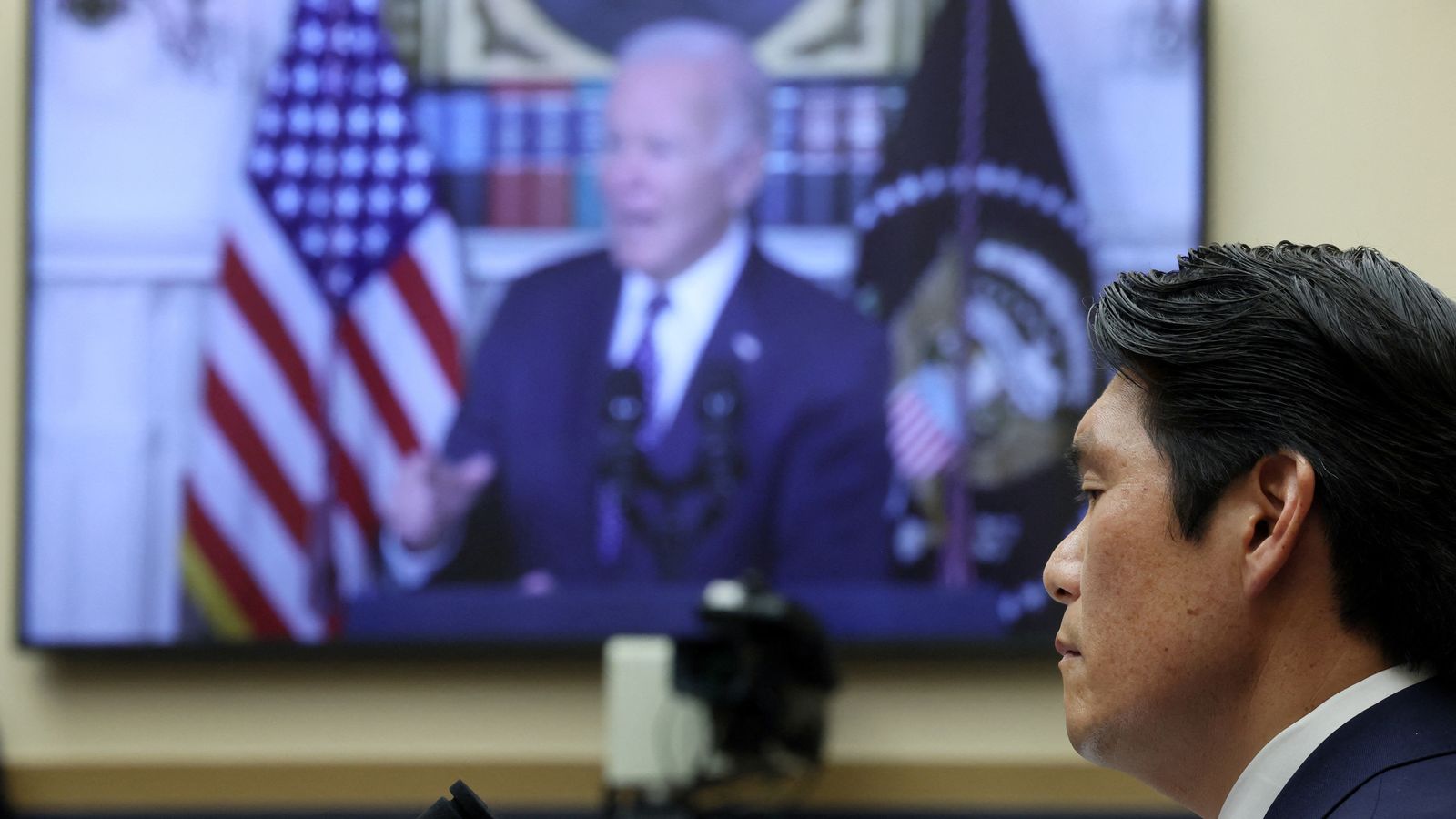In the president’s story, Robert Hur is cast in a cameo role – a small part, yet with a big impact.
He is the – now former – special counsel who delivered the bombshell characterisation of a “sympathetic, well-meaning elderly man with a poor memory“.
Amid concerns surrounding Joe Biden’s age and mental capability, it was the two-footed finding in his report that formalised the notion of mental frailty.
Last month, Mr Hur presented it as one reason why he was not pursuing charges for possession of classified documents. A jury, he reasoned, would not convict an old man of absent mind.
Read more:
How this year’s US election will shape the world
All you need to know about Trump’s legal cases
That conclusion did not assuage an incandescent White House, which accused Mr Hur of reaching beyond his legal brief to play politics – this, a man who was once nominated as the US attorney for the District of Maryland.
The report’s publication triggered an impromptu news conference by a furious President Biden, who denounced the report and its author.
In doing so, he confused the presidents of Egypt and Mexico and, generally, presented a performance of sufficient uncertainty and confusion to echo the report findings rather than refute them.
So much for a publication day that defined a new raft of doubt and debate over Mr Biden’s suitability for office.
Mr Hur’s appearance before a Congressional committee enabled legal questions of the legal mind at the heart of the story.
They are important, no doubt, to the process. Important to the politics was how Mr Hur’s testimony might expand on his published findings and further orientate discussion towards President Biden and mental weakness.
In truth, he didn’t.
That was a task taken up, heartily, by opposing sides of the House Judiciary Committee as members channelled ‘Biden versus Trump’ through their invited guest, complete with videos of both showing signs of memory lapse.
For Mr Hur, it was a hostile grilling from both sides of the political divide – Democrats angry at a president seemingly disparaged and Republicans irked that no charges had been brought.
Please use Chrome browser for a more accessible video player
Amid the crossfire, most notable from the quotable Mr Hur were his comments on guilt, senility and his reasons for highlighting the president’s memory.
In his opening statement, he described as “necessary, accurate and fair” his assessment of Mr Biden’s memory.
“I did not sanitise my explanation. Nor did I disparage the president unfairly,” he said.
“My task was to determine whether the president retained or disclosed national defence information wilfully – meaning, knowingly and with the intent to do something the law forbids. I could not make that determination without assessing the president’s state of mind.”
When he was asked if the report exonerated President Biden, he replied that it did not.
Please use Chrome browser for a more accessible video player
“That is not what the report says,” he said. “The report is not an exoneration. That word does not appear in my report.”
The Republican representative Scott Fitzgerald asked Mr Hur: “Based on your report, did you find that the president was senile?”
“I did not. That conclusion does not appear in my report,” he replied.
Robert Hur, the screen version, didn’t have the political import of the written work.
Be the first to get Breaking News
Install the Sky News app for free
For him, this was more a justification of his work than anything else, sticking to the script that he wrote and published in the report itself.
In this hearing, he lent little traction to the debate around a president’s age and abilities – whatever his intentions, that was a job already done.






